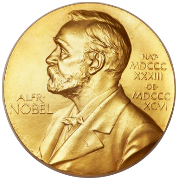Nobel Prize in Chemistry for 2023
The Nobel Prize in Chemistry for 2023 has been conferred upon Moungi G. Bawendi, Louis E. Brus, and Alexei I. Ekimov for their groundbreaking work on quantum dots. These tiny nanoparticles have far-reaching applications in various fields, from electronics to medical diagnostics.
Quantum Dots
- Quantum dots are nanoparticles with unique properties, whose characteristics are governed by quantum effects.
- They emit clear light and are used in television screens, LED lamps, and medical applications.
- Their applications range from catalyzing chemical reactions to illuminating tumor tissue for surgical procedures.
Contribution to Nanotechnology
- Quantum dots are now an essential tool in the field of nanotechnology.
- They have been instrumental in creating colored light and are envisioned to play a role in flexible electronics, sensors, thin solar cells, and encrypted quantum communication.
Contributions of Nobel Laureates
- Louis E. Brus and Alexei I. Ekimov, in the early 1980s, independently created quantum dots, demonstrating the significance of quantum effects in nanoparticle behavior.
- Moungi G. Bawendi revolutionized quantum dot manufacturing methods in 1993, ensuring high-quality production, a crucial requirement for nanotechnology applications.
Impact on Humanity
- Quantum dots are considered to bring significant benefits to humankind, with their potential applications still being explored.
- These tiny particles could revolutionize fields such as electronics, healthcare, and communication.
Nobel Prizes in 2023
- The Nobel Prizes are awarded annually in various categories, recognizing exceptional contributions to science, literature, peace, and economics.
- Other Nobel Prizes in 2023 include Physics for the study of attosecond pulses of light, Medicine or Physiology for the development of mRNA vaccines against COVID-19, and Literature and Peace Prizes yet to be announced.
Month: Current Affairs - October, 2023
Category: Awards, Honours & Persons in News







